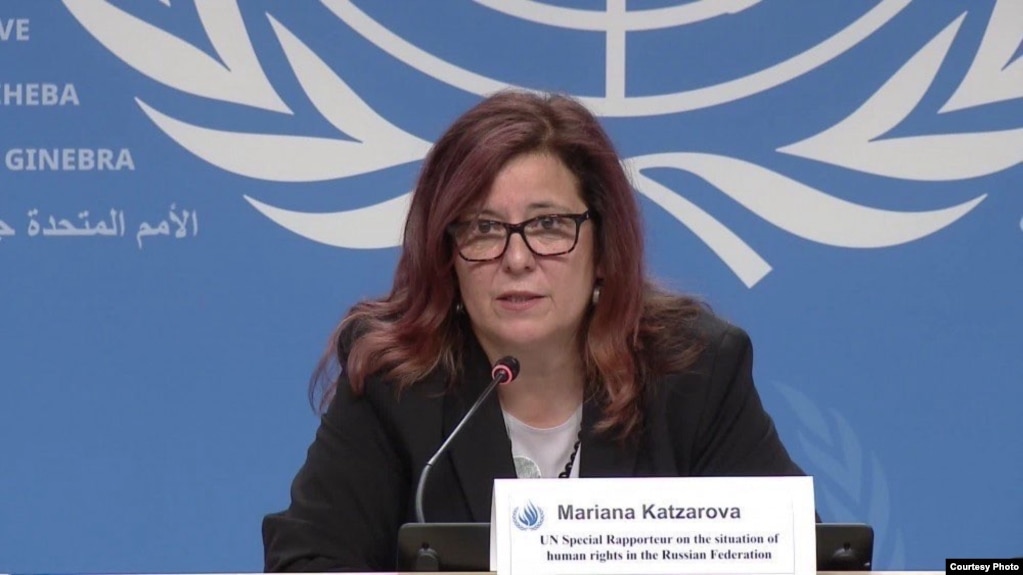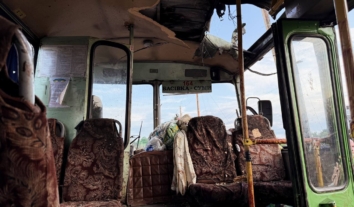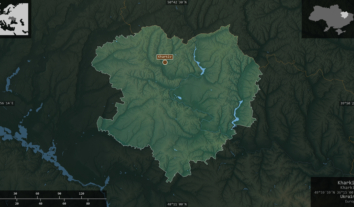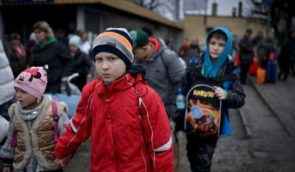The number of Ukrainians killed in captivity will be established only after all bodies are returned – UN Special Rapporteur
The number of Ukrainian civilians killed and held in captivity is still unknown, the UN Special Rapporteur on human rights violations in Russia, Mariana Katzarova, emphasised during a press conference dedicated to the People First campaign, which aims to release all prisoners of the Kremlin. In her opinion, this situation will remain unchanged until Russia returns the bodies of the dead and releases all prisoners.

During her speech, Katzarova mentioned the Russian-Chechen war. At that time, the narrative of the international community was that it was not our responsibility, so let Russia solve its internal problems. No one demanded that the Russians respect human rights, report on the number of deaths, or admit to war crimes. That is why, according to Katsarova, the world has no right to turn away from Ukraine now. Instead, the international community must seek fair punishment for Russian criminals involved in war crimes.
“This is our responsibility to the survivors; we want to save them. – Roughly 160 bodies have been returned by Russia to Ukraine. These are Ukrainians who died in detention,” she said.
According to Katsarova, the number of deaths can be established only after all the bodies are returned and all Ukrainian prisoners, whose number is currently unknown, are released. In her opinion, the situation needs to be changed to save lives, restore justice and bring the perpetrators to justice.
The UN Special Rapporteur supports the international advocacy campaign People First!, organised by the Center for Civil Liberties (CCL) and Memorial. Within its framework, human rights activists demand that Russia release prisoners of war, illegally detained civilians, deported Ukrainian children, and political prisoners.
In her recommendations last year, Katzarova also demanded the immediate release of all Ukrainian prisoners and Russian political prisoners. She pointed out that Russians who spoke out against the war paid for it with imprisonment.
“The release of these people is a prerequisite for any peace talks. We must demonstrate solidarity with the people of Ukraine and the victims of human rights violations,” the Special Rapporteur said.
She is convinced that it is impossible to achieve full-fledged peace in Ukraine without establishing justice for victims and survivors. Despite negotiations to end the armed conflict, Ukrainians continue to die. Russians deport people from temporarily occupied territories by the thousands, subject them to horrific torture and carry out extrajudicial executions.
Katzarova is outraged by the fact that the “new US administration is destroying the architecture of international justice, which is the cornerstone of international law.” Currently, the International Criminal Court is under constant attack, with sanctions being imposed on its prosecutors and judges.
“Negotiations should not take place without Ukraine’s participation. It is a despicable thing to do. Two countries, one of whom is the aggressor country, are discussing the plight of Ukraine without Ukraine being at the table. Russia started the war in Ukraine, and any attempts to call Russia “not the aggressor” as well as any narratives that blame Ukraine or Ukrainians is absolutely unacceptable,” she emphasises.
The Special Rapporteur criticised the attempts of the American side to act unilaterally as peacemakers during peace negotiations. In her opinion, the international community should demand justice and accountability for war crimes committed by Russians in Ukraine.
“We are against the war. We are against the continued killing and torture of Ukrainian men, women and children with impunity. We don’t need a peace that could lead to even greater destruction in Ukraine and to an endless war,” she emphasises.
It is known that a coalition of human rights organisations led by the CCL and Memorial launched the People First! campaign against the backdrop of US President Donald Trump’s intention to initiate peace talks on Ukraine this year.
Human rights activists believe that the most important priority in reaching agreements during the negotiations should be the release of all prisoners of war as a result of Russian aggression. Among them are thousands of Ukrainian civilians held by Russia, thousands of Ukrainian and Russian prisoners of war, more than 20,000 children forcibly displaced or deported to Russia, and hundreds of Russian political prisoners imprisoned for protesting against the war.
The organisations demand the immediate release of all Ukrainian civilians captured and illegally detained by Russia, unconditionally and with the possibility of returning home. For those whose homes are located in the territories controlled by Russia, the possibility of leaving for the territory controlled by Ukraine should be ensured.
The need to return all illegally displaced or deported children to Ukraine is also emphasised. The return of prisoners of war should also be carried out – through exchanges or other mechanisms. The Geneva Conventions provide for their immediate repatriation after the end of active hostilities.
In addition, the organisations demand the release of Russian political prisoners detained for anti-war statements or actions, as well as guaranteeing them freedom of movement, including the possibility of leaving the country at will. To ensure transparency and control over these processes, an independent international mechanism they recommended to be established to coordinate actions, monitor their compliance with international humanitarian law, and report regularly on progress.
Russia should also immediately grant UN agencies and the International Committee of the Red Cross full access to all captured, illegally displaced or deported children.
The Russian military has also been known to torture and dehumanise Ukrainian prisoners outside of the detention facilities in the form of slave labour to construct underground tunnels and defensive lines, among other duties for Russian forces. One such victim, Olena Yahupova, was kidnapped from her home and forced to assist a Russian engineering unit in constructing defensive lines in Zaporizhzhia. During the two months of her captivity before her release, she was subjected to torture, rape, and psychological pressure.







